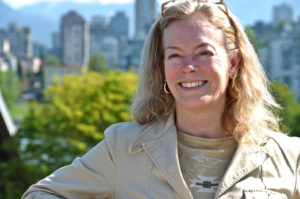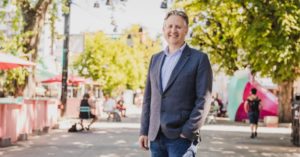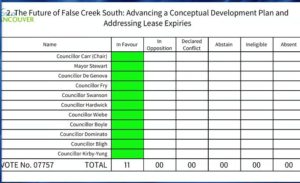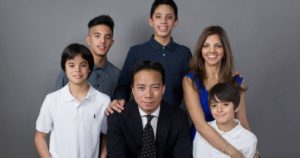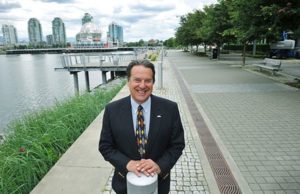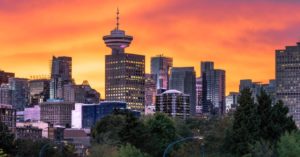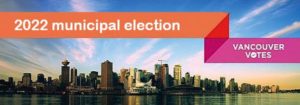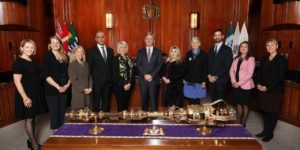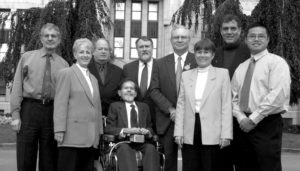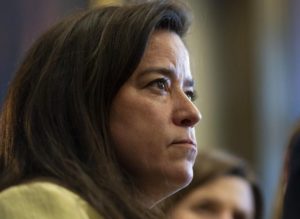 Vancouver’s next Mayor, Jody Wilson-Raybould, principled and a voice for our city, and our nation
Vancouver’s next Mayor, Jody Wilson-Raybould, principled and a voice for our city, and our nation
The woman pictured above, former federal Liberal Minister of Justice and Attorney General, Jody Wilson-Raybould — although something of a polarizing political figure, and although she has yet to announce her bid to become Vancouver’s next Mayor — come Saturday, October 15th, 2022 will become Vancouver’s 41st Mayor.
Possessed of great integrity — for which she is justly famous, and highly regarded — incredibly bright, accomplished, articulate and human in a way one rarely finds in the political realm, Jody Wilson-Raybould will likely announce her bid for the Mayor’s chair in early 2022, not out of any cynical calculation, but because Ms. Wilson-Raybould is a protector of our land, our city, and possessed of the kind of integrity that is all too rare in Vancouver politics — which is to say, she’s not involved in politics to enrich her bank account, or find herself beholden to developer interests — but honestly believes that she possesses the innate knowledge on the functioning of government and how best to achieve one’s policy goals, the heart, the humanity and the wit essential to emerge not just as the leader of our city, but a leader across our nation, as Vancouver’s necessary voice on the national stage.
VanRamblings believes that Ms. Wilson-Raybould will announce her candidacy for Mayor in the new year, following a series of meetings with the membership of the Coalition of Progressive Electors — represented by Jean Swanson on Council — and OneCity Vancouver, represented on Council by Christine Boyle.
Given that Ms. Wilson-Raybould is known for doing her homework, and given that affordable housing and human-scale development in Vancouver are key issues of concern for the voting electorate, Ms. Wilson-Raybould will also seek out the learned counsel of Patrick Condon, the James Taylor chair in Landscape and Livable Environments at the University of British Columbia’s School of Architecture and Landscape Architecture, among a host of other academics who care deeply for our city, including Simon Fraser University’s Andy Yan and Josh Gordon, and UBC’s Scot Hein, a highly-regarded former city planner.
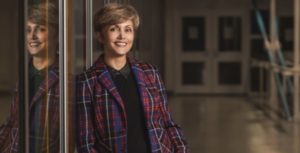 Calgary’s new and first woman Mayor, Jyoti Gondek
Calgary’s new and first woman Mayor, Jyoti Gondek
Calgary’s new Mayor Jyoti Gondek — the first female Mayor in the city’s history, who on her way to victory, defeated 26 challengers to replace outgoing Mayor Naheed Nenshi; Montréal’s re-elected Mayor Valérie Plante, who defeated incumbent mayor Denis Coderre in 2017, trouncing him again last month.
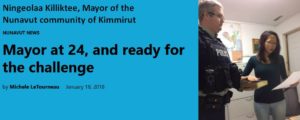
In Nunavut, the Nunavut News stated a new trend had emerged in the territory of young women in politics, as 24-year-old Ningeolaa Killiktee was elected Mayor of Kimmirut, and Pam Gross as Mayor of Cambridge Bay. In the Northwest Territories, one media outlet stated that “Female candidates swept the municipal elections in the NWT,” and the CBC reported the victories of female Mayoral candidates in Hay River, Inuvik, Fort Smith and Yellowknife.
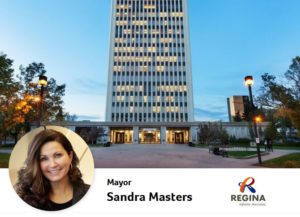
Canadian feminist and Mayor of Ottawa, Charlotte Whitton, was the first woman Mayor of a major city in Canada, serving from 1951 to 1956 and again from 1960 to 1964. Whitton was a Canadian social policy pioneer, leader and commentator, as well as a journalist and writer.
Janice Rhea Reimer became the first female Mayor of Edmonton, Alberta, serving in that capacity from 1989 until 1995. Saskatchewan Mayor Sandra Masters was sworn in as Regina’s 35th Mayor, after having swung to victory as the next year city’s first elected female Mayor, on November 23rd, 2020.
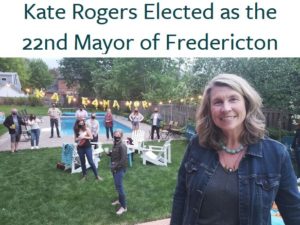 Kate Rogers elected as Mayor of Fredericton in 2020, the first woman to hold the position
Kate Rogers elected as Mayor of Fredericton in 2020, the first woman to hold the position
Toronto Mayors June Rowland & Barbara Hall, Montréal’s Valérie Plante, Edmonton’s Janice Reimer, Regina’s Sandra Masters, Calgary’s Jyoti Gondek, Ottawa’s Charlotte Whitton, Cambridge Bay’s Pam Gross & Kimmirut’s Ningeolaa Killiktee, Halifax’s Moira Leiper Ducharme (1991-1994), Charlottetown’s M. Dorothy Corrigan, St. John’s Suzanne Duff, and Fredericton, New Brunswick’s current Mayor, Kate Rogers — all duly-elected Mayors of Canadian cities.
Whither Vancouver?
Every Mayor of Vancouver, from Malcolm A. MacLean in 1886, through until Kennedy Stewart today, have been white men of privilege more often than not elected to serve the monied interests of our city. Why is it that in 135 years, the good citizens of Vancouver have never seen fit to elect a woman as Mayor of our city, when almost every other city in Canada has seen fit do do so?
In all likelihood, Vancouver City Councillor Colleen Hardwick will throw her hat into the ring to become Vancouver’s next Mayor.
Rumour has it, too, that former Vision Vancouver Councillor Andrea Reimer is considering a bid to become Vancouver Mayor. VanRamblings’ sources have told us Coalition Vancouver’s Wai Young is set on running for office, as Mayor, in next year’s Vancouver civic election.
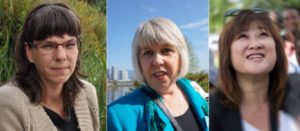 Andrea Reimer, former Vision Councillor (l); Adriane Carr, Green Party; Wai Young, Coalition Vancouver
Andrea Reimer, former Vision Councillor (l); Adriane Carr, Green Party; Wai Young, Coalition Vancouver
The Green Party of Vancouver’s Adriane Carr is also reportedly considering a run for Vancouver’s top elected office next year.
And there remains to this day, the persistent rumour that current populist and well-schooled Vancouver City Councillor Sarah Kirby-Yung may also run for office as Mayor in next year’s municipal election.
A surfeit of qualified women candidates for Mayor of Vancouver, any one of whom would well represent our city, should she be elected to the office of Mayor in the 2022 Vancouver civic election, only 321 short days from today.

